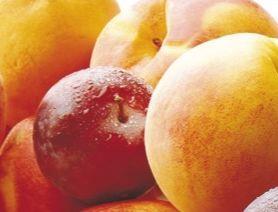
The Australian stonefruit industry is looking forward to emulating the success of that country’s table grape sector, which gained direct access to China recently, with its inaugural consignment arriving there in the middle of last month.
Australian Horticultural Exporters Association spokesperson David Minnis told Fruitnet.com Chinese authorities have indicated they could sign off on a deal by as early as 2012-13.
News of the impending access could not have come at a better time as growers in the country have seen profits dip this year in the wake of storm and flood damage in most of the major growing regions.
Mr Minnis said the table grape export protocol would help pave the way for the stonefruit industry to establish its own.
“The more protocols we’ve got up and running with China the better. They all help for the Chinese to have confidence in the country `Australia` and in our suppliers.”
The most important thing now, said Mr Minnis, was negotiating the terms of the protocol.
The main requirement for access would be in-transit or onshore cold treatment, he added, but the parameters for this would be important.
He hoped Chinese authorities would agree to similar cold treatment regulations to those used by Taiwan that allow temperatures of up to three degrees for a period longer than 14 days.
Recognition of the country’s fruit fly free areas would also be important in establishing a good working protocol, added Mr Minnis.
Lastly, he said it was important China accept the use of methyl bromide as a control against pests for fruit sent by air.
The massive Chinese market presented good opportunities for Australian fruit, he said, particularly early season varieties.
“We can be there earlier than Chile by sea. The period from December to February will be the best for us, before the large volumes of Chilean fruit start to arrive.”
He added that Australia’s relative proximity to China meant it could provide better quality fruit.
“Chile is four weeks away by sea, so they have to pick their fruit when it is not properly ripened, so they are sacrificing sugar levels for good shelf life.”
Chairman of the country’s peak industry body Summerfruit Australia, Ian McAllister said in a media release that with Australia producing fruit counterseasonally to the Chinese it could supply out of season fruit to major festivals there, such as Chinese New Year and the Lantern and Zhonge festivals in February and the Ching Ming festival in April.
He added that Australian white-fleshed peaches and nectarines with high sugars and low acidity were well-suited to the Chinese palette.
Meanwhile, the organisation’s CEO John Moore told Fruitnet.com Chinese authorities were currently working on a Pest Risk Analysis for the import of peaches, nectarines, plums and apricots that should be released soon.



